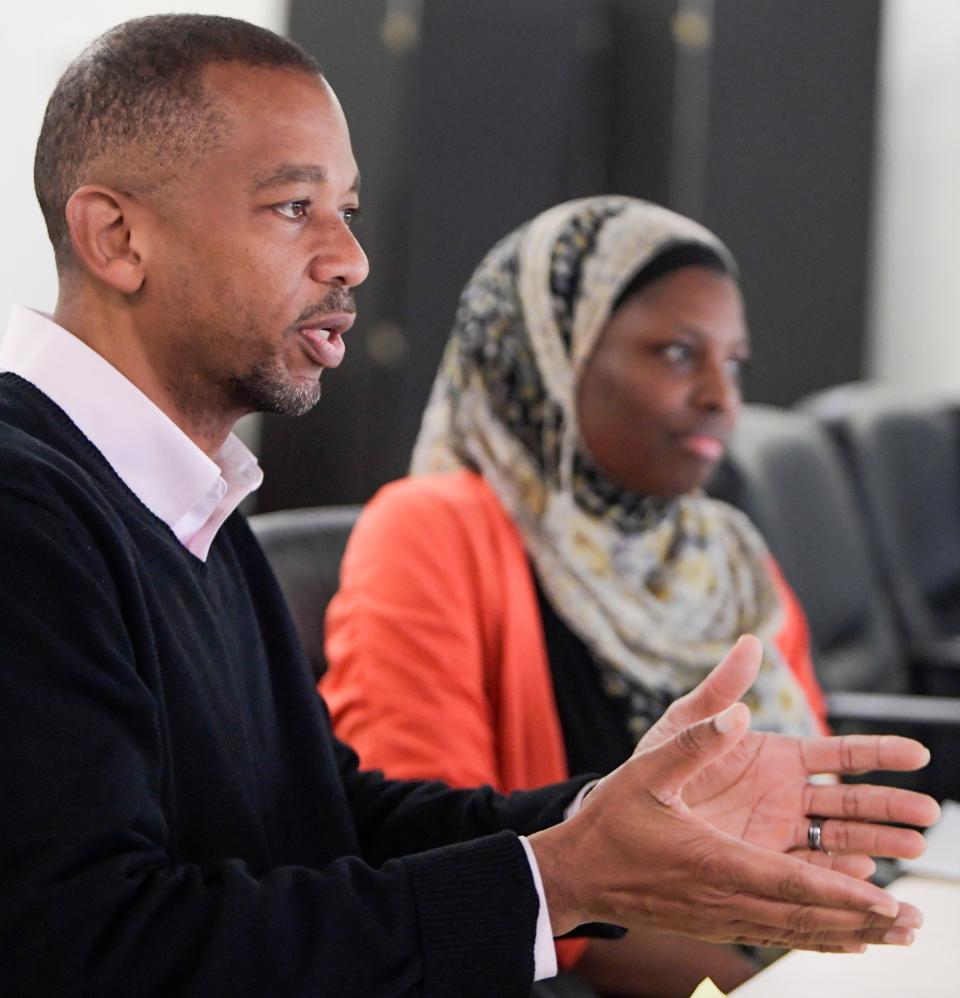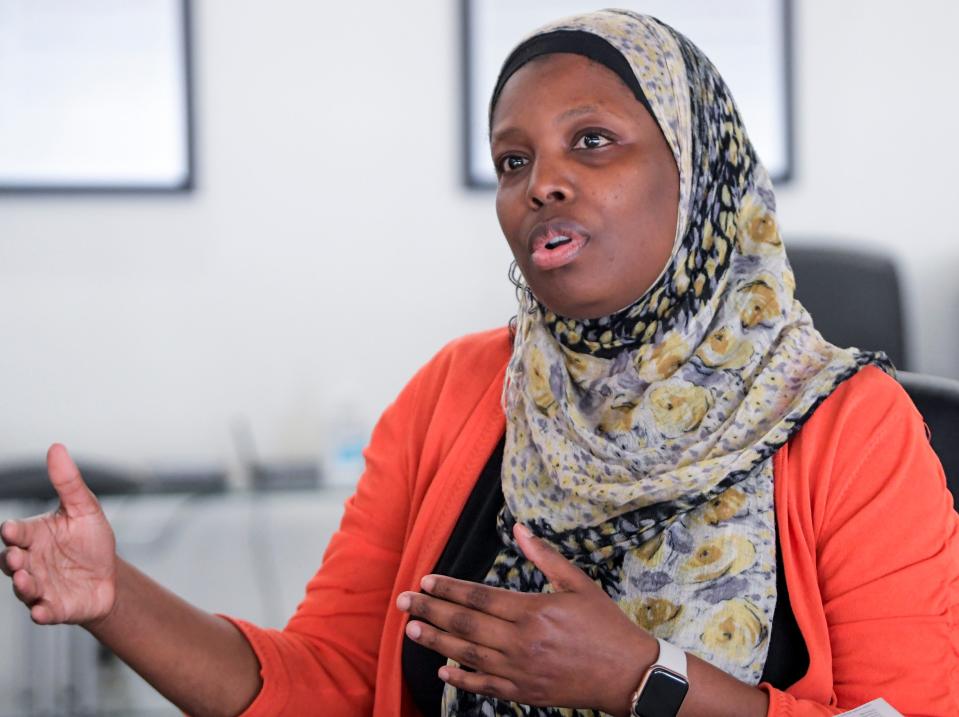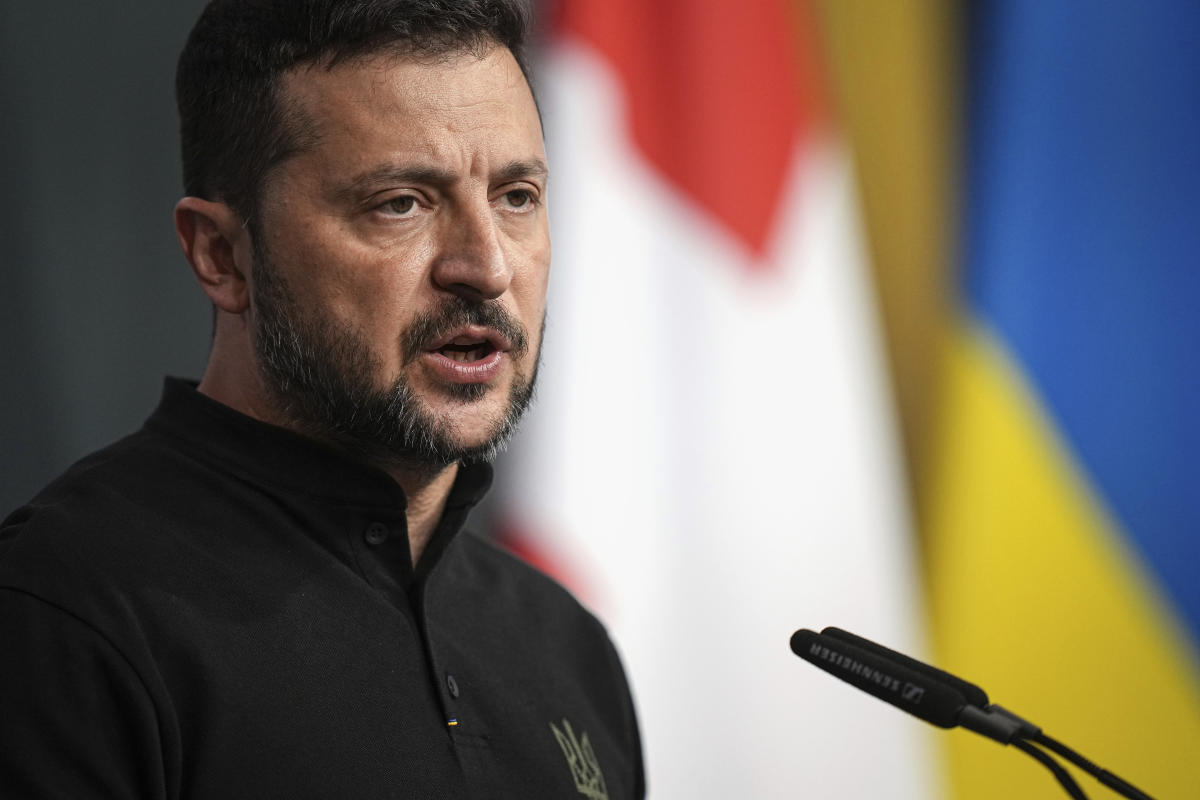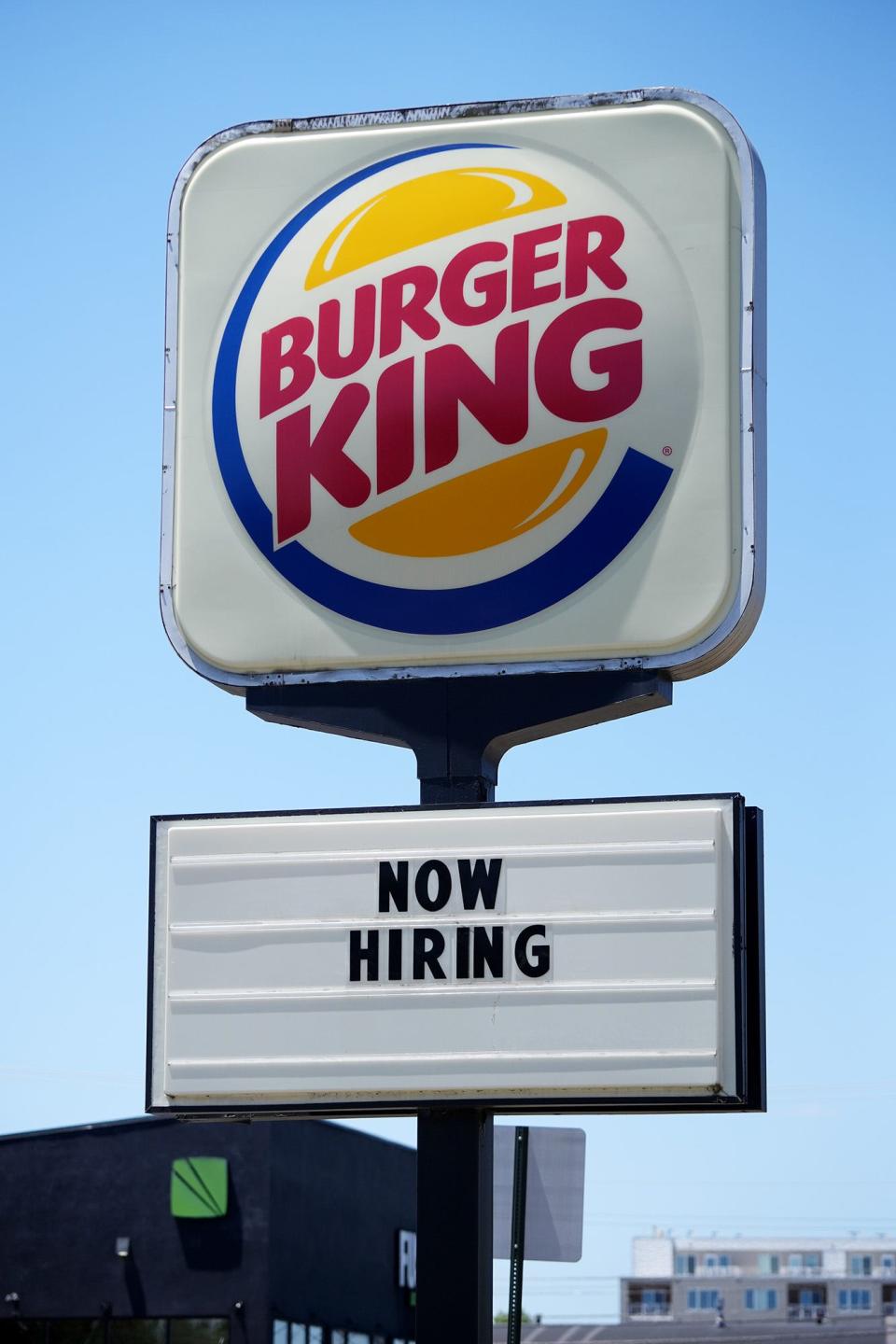One day in early fall of 2023, Montgomery resident Kimberly Brown stood outside of her home wondering what she would do when temperatures dropped.
The office where she worked was on the verge of bankruptcy and hadn’t paid her in two weeks. Her rent was due soon, her fridge was running low on fresh groceries and her daughter had outgrown her winter coat. If a cold front came through before a paycheck did, that might just be the thing to send her over the edge.
“I was just having a hard time making ends meet,” Brown said. “Even working, everything was so expensive.”
A few days later, her coworker told her about an anti-hunger program that she had joined with the nonprofit Equal Justice Initiative. The program was simple: EJI identified people who were food insecure and provided them with a prepaid card monthly. No strings, no strict instructions, just support for those who needed it.
Brown reached out to EJI, and within two weeks, she met with an employee to pick up her card.
“That was heaven-sent,” Brown said.
Eliminating judgment to provide support
The program launched in early 2023 with the explicit purpose of providing Alabamians with the resources to obtain adequate food for themselves and their families on a regular basis. EJI founder and executive director Bryan Stevenson said the idea emerged after the United States Department of Agriculture released a particularly distressing study on food security in 2022.
The study reported that over 44 million people in the U.S lived in households struggling to get enough food for everyone, including 13 million children. It also found that the number of food-insecure kids in the U.S. rose 44% from 2021 to 2022.
“Of course, this range in the American South had some of the highest rates of insecurity,” Stevenson said. “We decided to take a different approach than a lot of food banks and other people working in this space. We wanted to empower individual heads of households to have the resources to address the problem of food insecurity in a way that works best for them.”
Ultimately, this meant distributing prepaid cards, each loaded with exactly $415, to individuals across Alabama on a monthly basis. Depending on the size and the location of the family, that amount can stretch longer, but it is completely up to the individual to budget out the funds.
“By and large, I trust the heads of household to make good decisions about how to take care of their families, and that’s been that’s been reinforced by our experience with the families that we work with,” Stevenson said. “They’ve been very, very capable and effective at making this enhance the quality of their lives.”

For example, he said one participant’s central barrier to food security was a lack of transportation to get to and from the store. After time in the program, having funds for food taken care of, the person was able to save up enough money to buy a car.
Early on, Stevenson considered placing limitations on what the cardholder could purchase, but decided against it. He remembered once seeing someone criticized for using federal Supplemental Nutrition Assistance Program benefits to buy a birthday cake, and he didn’t want to allow room for that kind of judgment in this program.
“Just because you’re poor doesn’t mean your life shouldn’t be celebrated on your birthday. Just because you’re poor doesn’t mean that you’re not capable of being a fantastic parent to your children,” Stevenson said. “It’s been important to us that the cards we give people look just like the cards that everybody else uses. If they choose to buy a birthday cake for their five year old or if they choose to buy cereal that has a gift inside or something like that, that’s not a bad choice.”
The impact of $415 per month
Now, a year since launching, over 2,000 families have benefited from the EJI program, and 200 of those have been in Montgomery County.
The EJI team members leading the program are chief operations manager Ayisha Abdur-Rahman and project manager Richard Burton. Between the two of them, they field applications, organize distribution (which is always done in person), answer participant questions and constantly look for ways to improve the program.
“It’s been one of the most rewarding opportunities that I’ve ever had in my lifetime to be a part of this program and to be able to see what the impact of it has been,” Burton said. “We’re changing lives.”

Abdur-Rahman echoed the sentiment as she recalled one of the most personally impactful cases she worked on.
The participant was a young mother living in an apartment, and every month when Abdur-Rahman would deliver one of the prepaid cards to her, she would talk about her living conditions.
“She just felt really strongly, ‘I have got to figure out a way to get my family into a different home.’ She wanted something different for her children,” Abdur-Rahman said.
Earlier this year, the woman moved her kids into a new house.
“She was able to utilize the resources that she was getting through the hunger relief program, and that allowed her to put other funds away to help her meet that goal of actually being able to move her family into a home,” Abdur-Rahman said. “That felt really good.”

When needs outweigh resources
For every family accepted into the program, though, there are five more on EJI’s waitlist.
Stevenson hopes to double the program’s capacity in the next year and increase the acceptance rate. In the meantime, families with children and those managing health or housing crises are being prioritized.
Most participants remain in the program for three to six months, but in some cases, people have been allowed to receive cards for longer. Then, when one family leaves the program, there is room to bring in another.
“What we hope that we’ll do is allow them to manage other parts of their lives so that they won’t be food insecure in another year,” Stevenson said.
Brown’s newfound stability
When Brown started the program, she was in an unsteady job, unsure of how to feed her family, find better work and pay what she owed on her child’s private school tuition all at once.
All she needed was four months of EJI support to get back on top of things.
“That card allowed me to still be able to pay my rent and go buy food, juice and water,” Brown said. “My baby has to take a lunchbox to school every day. That allowed me to help make sure that she had a healthy lunch. And not only a healthy lunch, but some gloves, a hat and a coat for the cold season. It really, really helped me with the necessities that I just didn’t have at that time.”
She said having that $415 cushion of support gave her the freedom to find a better job and the security to provide for her biological child and her sister’s children in her care.
“Sometimes you need that extra help to push you on to the next step or just to fill up your fridge or your freezer,” Brown said. “I’m not the type to just reach out quickly and ask for help, but when you need it, don’t be afraid to ask. It can be a game changer, a life changer. It was for me.”
Those in need can contact EJI about the program by emailing hungerrelief@eji.org.
Hadley Hitson covers children’s health, education and welfare for the Montgomery Advertiser. She can be reached at hhitson@gannett.com. To support her work, subscribe to the Advertiser.
This article originally appeared on Montgomery Advertiser: EJI hunger relief program supported over 2,000 families in first year
Signup bonus from





